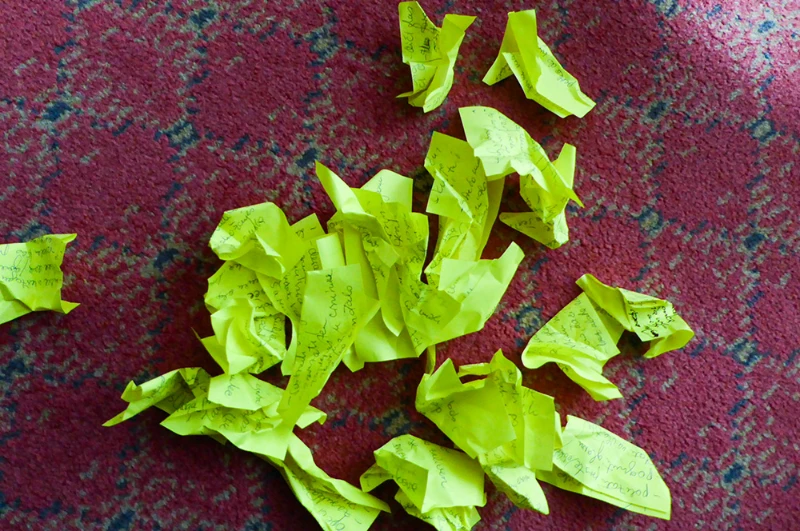How Does a Writer Improve in Their Writing
Written by Ana Bilić

The situation:
The novel is written and published. The author is really enthusiastic about the text, in love with their work and thinks it’s great. Ten years later, the author re-reads the text and is amazed by their own work: “Huh! I wrote that? Hmm… I mean, okay, the idea is good, some passages aren’t too bad either, but all in all – well. Not a gem. Not a masterpiece. Why didn’t I notice that at the time?” – The answer is clear: you were ten years younger; your writing experience was more modest and – yes, we’re all smarter in hindsight. We all know this phenomenon from everyday life.
But for an author, that’s not the end of the disappointment. When they write a new text, doubts arise again that can’t simply be shaken off. “Will I find myself in this situation again? Will I experience the same thing ten years later? Will I find the work I’m currently working on mediocre and flawed? Because I also think now – as I did then – that the manuscript is promising.” – The fact that an author is often never satisfied with their own work can also be a kind of explanation. But this blindness to their own work – ‘God, I’ve written something and I don’t even know where the mistakes are!’ – gets on the nerves of many authors. You’re blind, not critical. Editors can help, but they generally suggest a light version of the revisions. Besides, if the work has serious errors, it won’t even reach an editor.
The following happens:
When you write, you are “in it”, letting yourself be guided by thoughts, emotions, inspirations, notes, observations, etc. – the author finds themselves in a kind of operational blindness. If you observe critically, you have to leave this realm and look at what you have written as if it were someone else’s work. And the principle is inexorable: inner operational blindness can only be compensated for by external criticism. This is precisely what makes good literary writing: whoever changes between the “inside” and “outside” versions the quickest is the master of their craft. If you wait ten years for that, you still have a lot of practicing and a lot of writing to do.
Can this interlude be accelerated?
The challenge lies in the fact that the author likes to stay in the flow of writing rather than critically observing themselves. Critical observation means constantly asking “why?” for everything that is written – about characters, plot, structure, style, etc. If there is an inconsistency, you hit the bull’s eye: yes, there is a mistake.
I’ve had good practice at hunting for mistakes – without realizing it in advance: when I wrote the screenplay for my feature-length film “When the Woodlark Sings”. A screenplay is the condensed essence, a high-dose extract of every single part of the story. Anything that is superfluous in a story has no place in the screenplay. For one clear reason: a large part of the story is consumed as moving images, not as words. So, in the screenplay, descriptions remain brief, the plot must be logical, characters convincing, their relationships comprehensible, dialog and actions must give characters three dimensions. And all this in a maximum of 120 pages. A story written in this way is so transparent that the mistakes are obvious.
So here is my recommendation:
If, in your inspirational blindness, you need necessary corrections to the text, you should try to make your manuscript naked, refrain from doing anything that is not necessary and ask it a “Why?” for every part of the story. This nakedness enriches the manuscript immeasurably.
More Blog Posts
-
7 Phases of Writing a Text
-
Of Favorite Novel Characters and Shakespeare's Characters
-
On the Uncertain Freedom of Being and The Great Gatsby
-
The Last Sentence – the Answer and the Fruit
-
About the Blue Portrait, or About Words as My Friends
-
How Can a Story Write Itself?
-
How Does a Writer Improve in Their Writing
-
Something Like an Eternal Literature
-
A Good Writing Style, or the Author's Guided Dialog
-
What Makes a Good Novel?
-
About My Bookcase, Oscar Wilde and My Vocation as a Writer
Impressum | Datenschutz | Kontakt